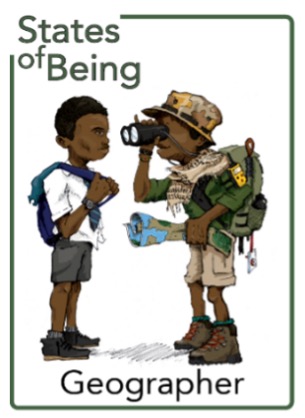Geographer
Being a Geographer at Filton Avenue
A high-quality geography education should inspire in pupils a curiosity and fascination about the world and its people that will remain with them for the rest of their lives. Teaching should equip pupils with knowledge about diverse places, people, resources and natural and human environments, together with a deep understanding of the Earth’s key physical and human processes. As pupils progress, their growing knowledge about the world should help them to deepen their understanding of the interaction between physical and human processes, and of the formation and use of landscapes and environments. Geographical knowledge, understanding and skills provide the frameworks and approaches that explain how the Earth’s features at different scales are shaped, interconnected and change over time.
The aims of being a Geographer are:
- To develop contextual knowledge of the location of globally significant places – both terrestrial and marine – including their defining physical and human characteristics and how these provide a geographical context for understanding the actions of processes
- To understand the processes that give rise to key physical and human geographical features of the world, how these are interdependent and how they bring about spatial variation and change over time
- To be competent in the geographical skills needed to:
- collect, analyse and communicate with a range of data gathered through experiences of fieldwork that deepen their understanding of geographical processes
- interpret a range of sources of geographical information, including maps, diagrams, globes, aerial photographs and Geographical Information Systems (GIS)
- communicate geographical information in a variety of ways, including through maps, numerical and quantitative skills and writing at length.
Where does it come from?
Being a Geographer is integrated into our curriculum through an enquiry-led, local learning approach. This approach recognises that the cognitive maturity of learners affects what and how they learn. It encourages learners to be a Geographer and develop their disciplinary knowledge as well as their substantive knowledge of geographical concepts.
Implementation
What does being a lead Geographer entail?
- Provide encouragement and ideas to staff across the school. Know when Geographer enquiries are happening and speak with the relevant year groups.
- Ensure visits and experiences are carried out and provide support regarding this.
- Monitor content, progression and enquiries and be mindful of coverage ‘v’ skill acquisition.
- Support with the development of skills and knowledge progressions.
- Lead staff training sessions.
- Drive the development of being a Geographer, sharing best practice.
- Evaluate being a Geographer and complete a Deep Dive analysis.
- Ensure enquiry planning and floor books (or alternative evidence) are sufficient to effectively represent the state of being you lead.
- Lead a group of children to be “Champions” for the subject and use this group to gather different voices across the school.
- With the State of Being Champions, create an annual newsletter for your state of being, which is sent to families and shared on our website and other social media channels. This should celebrate learning, create aspiration and centre children in current affairs for that state of being.
- Working closely with these Champions, have a strong focus on developing pupil voice, ensuring our pupils know their thoughts are valued and providing evidence of the positive impact of our curriculum.
- Lead being a Geographer in line with the school improvement plan and curriculum action plan so that you are sensitive to, and understand how, whole school improvement has to be considered strategically in order to have the best effect and not overwhelm staff.
What is ‘covered’?
Essentially, a Curious-city curriculum uses the National Curriculum 2014 areas as a basic foundation of entitlement. However Curious-city is much more than that. It is localised, real-life and challenges learners to apply their learning in unique ways without the support of adults to prove what they have learnt. Local companies, charities, organisations, individuals and objects are used as foci to enhance and instill a sense of curiosity, pride and stewardship.
Impact
How is Being a Geographer monitored and assessed?
Every term, Being Champions meet as a team (the Enquiry hub) to discuss and share what they are seeing and hearing and, working as a team, help to review the school’s curriculum and contribute to the Enquiry action plan.
Twice a year, Being Champions work with the Enquiry leads to review floor books and enquiry books to ensure coverage and progress across the school for their state of being.
As there is no requirement to formally report attainment of Geography, Being a Geographer is assessed through monitoring how a learner responds to enquiries and whether they show a particular enthusiasm and disposition towards it, or, if they constantly needed support in order to access it. This information is recorded on the Enquiry crib sheets which are kept and used for report writing towards the end of the year. These are then passed on to the next teacher to use to support future learning.

National Curriculum coverage linked to our enquiries
If you want to be a Geographer at home, try looking at these websites:
The BBC Bitesize websites link to videos, games and information a wide range of geographical knowledge:
The Geographical Association is the leading organisation supporting geographical teacher in the UK. Their resources are available at:
The Royal Geographical Society has also published a wealth of resources to help teachers and parents:




